
Honoring the Women of American Judo
by Nicole Jomantas
(Colorado Springs, Colo.) – While men’s judo was introduced at the 1964 Olympic Games in Tokyo, women did not have the opportunity to compete on the sport’s highest levels until the first Women’s World Championships in New York City in 1980 and, later, the 1988 Olympic Games in Seoul and the 2004 Paralympic Games in Athens.
Since then, the trailblazers of American women’s judo have made history and paved the way for future generations.
Today, on International Women’s Day, we look at some of the top moments in the history of judo and the women who represented Team USA on the podium.
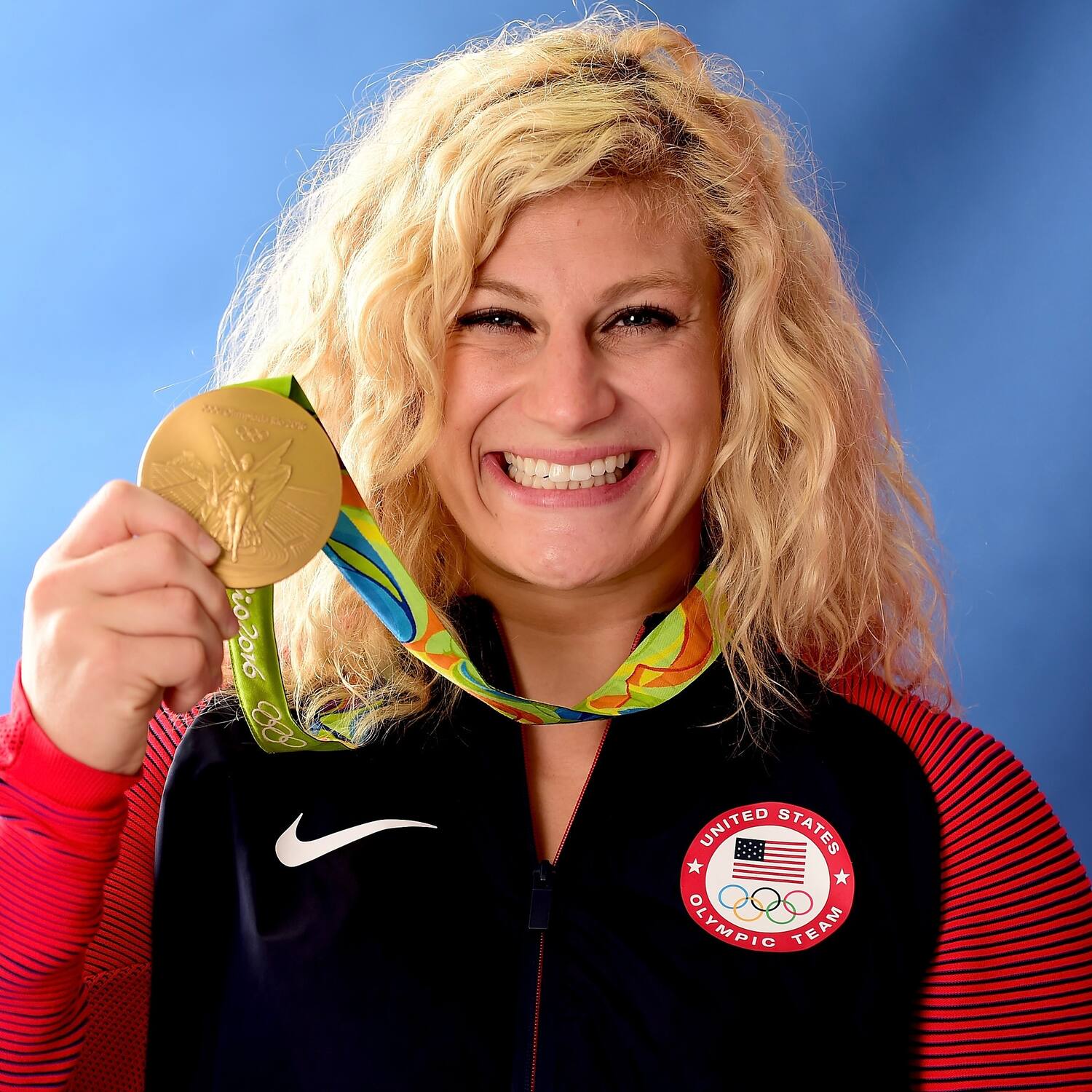
Kayla Harrison
Before she became the first U.S. athlete, male or female, to win Olympic gold at the London Olympic Games in 2012, Kayla Harrison (Middletown, Ohio) earned the 78kg Junior World Championship title in 2008 – following in the footsteps of two-time Olympians Hillary Wolf (Chicago, Ill.) and Ronda Rousey (Santa Monica, Calif.) who won gold in 1994 and 2004, respectively.
Two years later, Harrison won the first of three Senior World Championship medals, taking gold in 2010 and following with bronzes in 2011 and 2014.
Harrison successfully defended her 2012 Olympic title in 2016 – becoming the fifth female judoka to do so and the first outside of Asia.
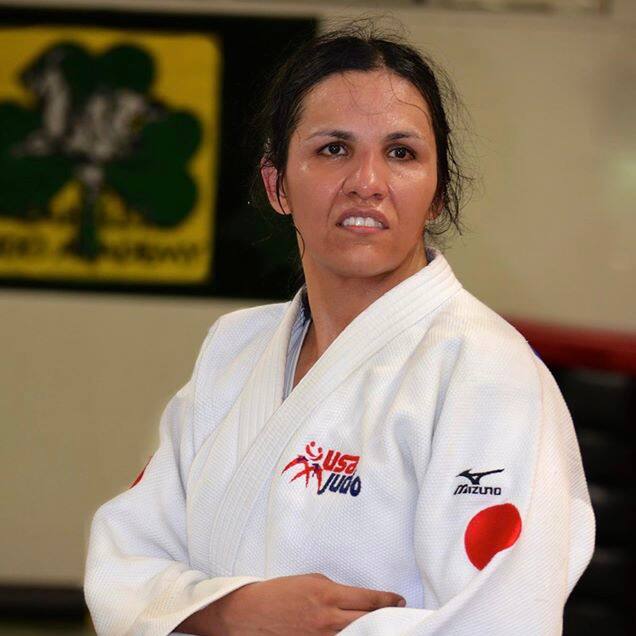
After narrowly missing out on a bronze medal in the 70kg event at the 2012 Paralympic Games, Christella Garcia (Sacramento, Calif.) moved up to +70kg where she won the first medal by a U.S. woman in judo at the Games since 2004. Garcia also won two medals at the Para Pan American Games, taking bronze in both 2011 and 2019. At 44 years old, Garcia remains a top contender for the 2024 Paralympic Team after winning gold at the 2023 IBSA Portugal Grand Prix.
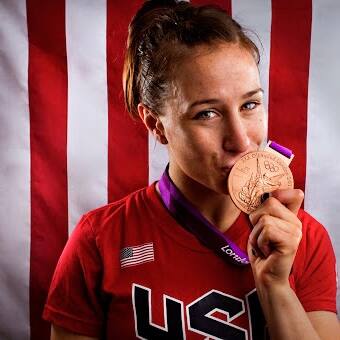
Competing at her first Olympic Games in 2012, Marti Malloy (Oak Harbor, Wash.) won bronze in the 57kg division as the second U.S. woman to reach the Olympic podium since women’s judo became a full medal sport in 1992. Malloy would go on to fight in the finals of the 2013 Senior World Championships where she added a silver medal to a resume that also included five National Championship and four Pan American titles.
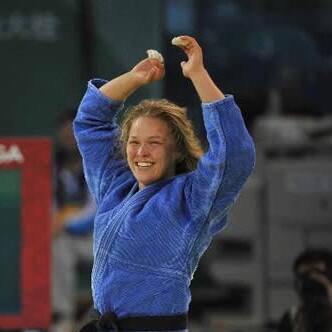 Ronda Rousey
Ronda Rousey
In 2004, Ronda Rousey (Santa Monica, Calif.) made herself known to the judo world, winning gold at both the Senior Nationals and Olympic Trials at 63kg and earning both the Senior Pan American and Junior World Championship titles as well. From that year on, Rousey became nearly unstoppable in the United States, winning six National Championship titles over her career as she rose through the international ranks and won silver in the 70kg event at the 2007 Senior Worlds – the first podium finish for a U.S. woman at the event in the Olympic era. In 2008, Rousey won Olympic bronze, standing on the podium for the first time since Lynn Roethke (Fond du Lac, Wis.) and Margaret Castro-Gomez (New York City, N.Y.) won silver and bronze when women’s judo was held as a demonstration event at the 1988 Olympic Games.
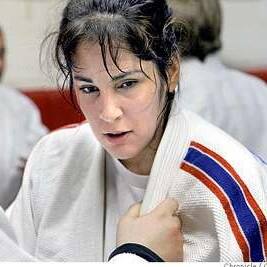 Lori Pierce
Lori Pierce
Sixteen years after men’s judo was added to the Paralympic program in 1988, women’s judo made its debut at the 2004 Games in Athens and 19-year-old Lori Pierce (Denver, Colo.) made history with her silver medal win in the 70kg event just two years after taking up the sport. Although Pierce missed the podium with a fifth-place finish at the 2006 World Championships, she returned to the medal stand at the 2010 Pan Ams with a silver medal finish.
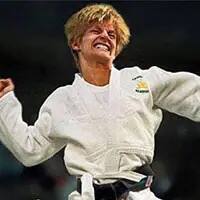
Following her silver medal finish in the 61kg event at the 1987 Senior World Championships, Lynn Roethke (Fond du Lac, Wis.) returned to the podium with a silver when women’s judo made its debut at the 1988 Olympic Games. Roethke won the 1992 Trials to qualify for her second Games. Between 1984 and 1994, Roethke won nine Senior National titles and, after her retirement in 1996, returned to the mat in 2004 to take bronze at 57kg.
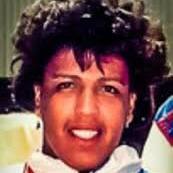
One of the most dominant women in her era, Margaret Castro-Gomez (New York City, N.Y.) won 11 Senior National titles across the +72kg and Open events between 1977 and 1988 and captured silver at the 1982 Senior World Championships and bronze in 1984 and 1987. A five-time Pan American Champion, Castro-Gomez stood on the podium one more time at the 1988 Olympic Games where she ended her career with a bronze medal.
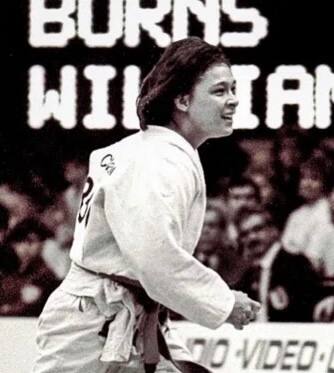
At 26 years old, AnnMaria Burns (Santa Monica, Calif.) had already won three Senior National titles as well as gold at the Pan American Games when she took the mat at her second Senior World Championships in 1984. Burns also had given birth to her first daughter, Maria Burns, and earned her MBA while training and competing. With one last thing to accomplish in a storied career, Burns became the first American to win the World Championships that year. Less than three years after retirement, she would become a parent again – this time to Ronda Rousey (Santa Monica, Calif.) who would add both Olympic and Senior World medals to the family history.
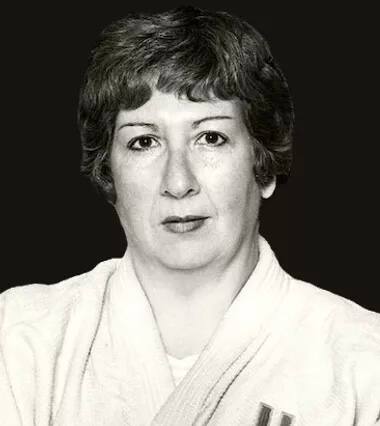
Long considered the “Mother of Women’s Judo,” Rusty Kanokogi (Brooklyn, N.Y.) learned judo as the only woman in a class full of men, holding her own even as a 20-year-old single mother. With no women’s judo in the United States, Kanokogi entered the New York State YMCA Championships in the men’s event, but was thrown out when organizers were told she was a woman. In 1962, Kanokogi went to Tokyo to train at the Kodokan where she became the first woman to be allowed to train with the men. She would go on to become not only a competitor and coach, but the world’s greatest advocate for women’s judo, coaching the U.S. women and raising funds for the squad to compete internationally with the goal of seeing women’s judo in the Olympic Games. But first, she was told there would have to be a Women’s World Championships. Kanokogi went to work, mortgaging her house during the fundraising for the 1980 Women’s World Championships. The inaugural event drew 1,000 spectators and athletes from 27 nations, putting women’s judo one step closer to its debut at the Games. In 1984, when she got word that the International Olympic Committee wouldn’t be putting women’s judo on the program for the 1988 Games, she continued her fight, partnering with the ACLU as she took to the media and threatened legal action against the International Olympic Committee for discrimination against women. Thanks to her efforts, women’s judo was indeed included on the 1988 Olympic docket as a demonstration and event and would become a full medal event at the 1992 Games.